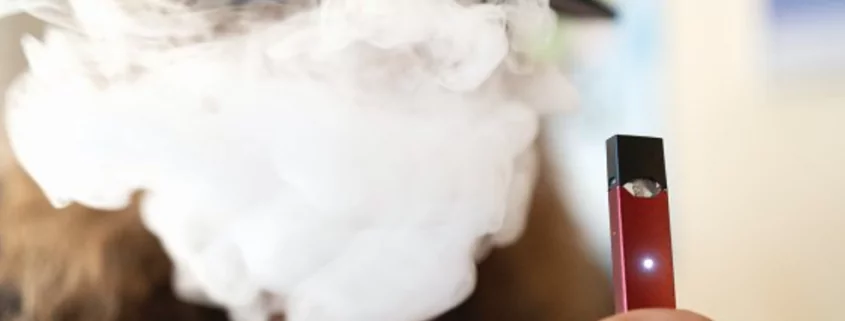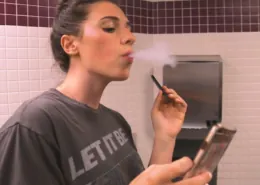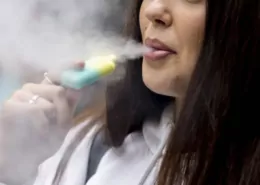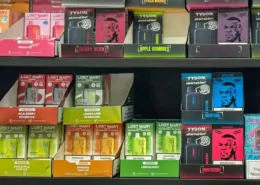Oklahoma Reinstates Fines for Underage Vaping Possession
In the constantly evolving landscape of tobacco and vaping regulations, Oklahoma has recently made a significant change. Governor Kevin Stitt has signed into law H.B. 2165, which reinstates fines for underage possession of tobacco and vaping products. In this article, we will discuss the key aspects of this new law and its potential impact on Oklahoma’s youth and communities.
The Background: Previous Legislation and Changes
Gov. Kevin Stitt’s Initial Actions
Last year, Governor Kevin Stitt signed a law that removed fines for individuals under 21 caught illegally purchasing or possessing tobacco or vaping products. This decision was met with mixed reactions, as some saw it as a progressive move towards harm reduction, while others argued that it could lead to increased youth consumption.
The New Law: H.B. 2165
This week, Gov. Stitt took a step back from his previous stance by signing H.B. 2165 into law. This bill reintroduces fines for underage individuals caught possessing, purchasing, attempting to purchase, or using fraudulent identification to buy tobacco or vaping products.
Penalties and Consequences
Under the new law, anyone found in violation must attend a tobacco cessation program and may be required to complete community service. Failure to comply can result in fines of up to $50 for the first offense and $100 for subsequent offenses.
Local Authority Restored
H.B. 2165 also restores the power of local cities and municipalities to issue their own punishments for underage possession of tobacco and vaping products. This aspect of the law had been removed in the previous legislation, sparking debates on local autonomy and control.
The Implications of H.B. 2165
Reinforcing a Healthier Environment for Oklahoma’s Youth
By reinstating fines for underage possession of tobacco and vaping products, the state aims to discourage young people from engaging in these harmful behaviors. This measure could potentially lead to a decrease in tobacco and vaping usage among Oklahoma’s youth, promoting healthier habits and reducing the risk of future health complications.
Empowering Local Communities
The restoration of local authority to issue punishments for underage possession allows cities and municipalities to tailor their enforcement strategies to the unique needs of their communities. This flexibility may result in more effective prevention and cessation efforts, ultimately benefiting public health and reducing healthcare costs.
Conclusion
The signing of H.B. 2165 marks a significant shift in Oklahoma’s approach to underage tobacco and vaping possession. With the reintroduction of fines and the restoration of local authority, the state has taken a firm stance on protecting the health and well-being of its youth. As the new law goes into effect on November 1, 2023, it remains to be seen how these changes will impact tobacco and vaping use in Oklahoma.
FAQs
- What are the main changes introduced by H.B. 2165?
H.B. 2165 reintroduces fines for underage possession of tobacco and vaping products and restores the authority of local cities and municipalities to issue their own punishments. - When does the new law go into effect?
H.B. 2165 goes into effect on November 1, 2023. - What are the penalties for violating the new law?
Violators must attend a tobacco cessation program, may be required to complete community service, and face fines of up to $50 for the first offense and $100 for subsequent offenses. - How does H.B. 2165 impact local authority?
The law restores the ability of local cities and municipalities to issue their own punishments for underage possession of tobacco and vaping products, allowing them to tailor enforcement strategies to their community’s needs.
- What is the goal of reinstating fines for underage possession of tobacco and vaping products?
The goal is to discourage young people from engaging in harmful behaviors, potentially decreasing tobacco and vaping usage among Oklahoma’s youth and promoting healthier habits.
- Is Vaping While Driving Illegal in North Carolina? - June 29, 2025
- Vaping Laws in North Carolina –A Comprehensive Guide for 2025 - June 29, 2025
- Is Vaping While Driving Illegal in New Mexico? - June 28, 2025







